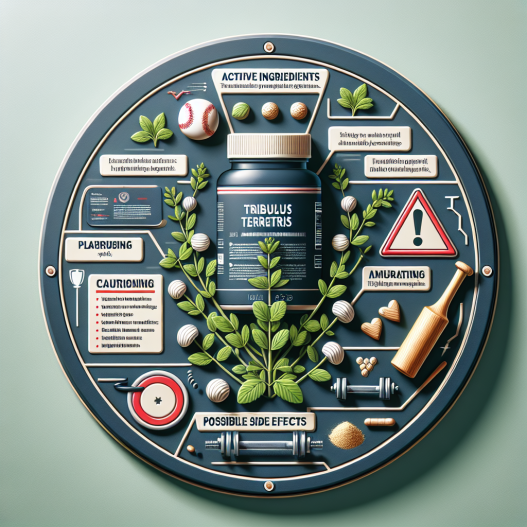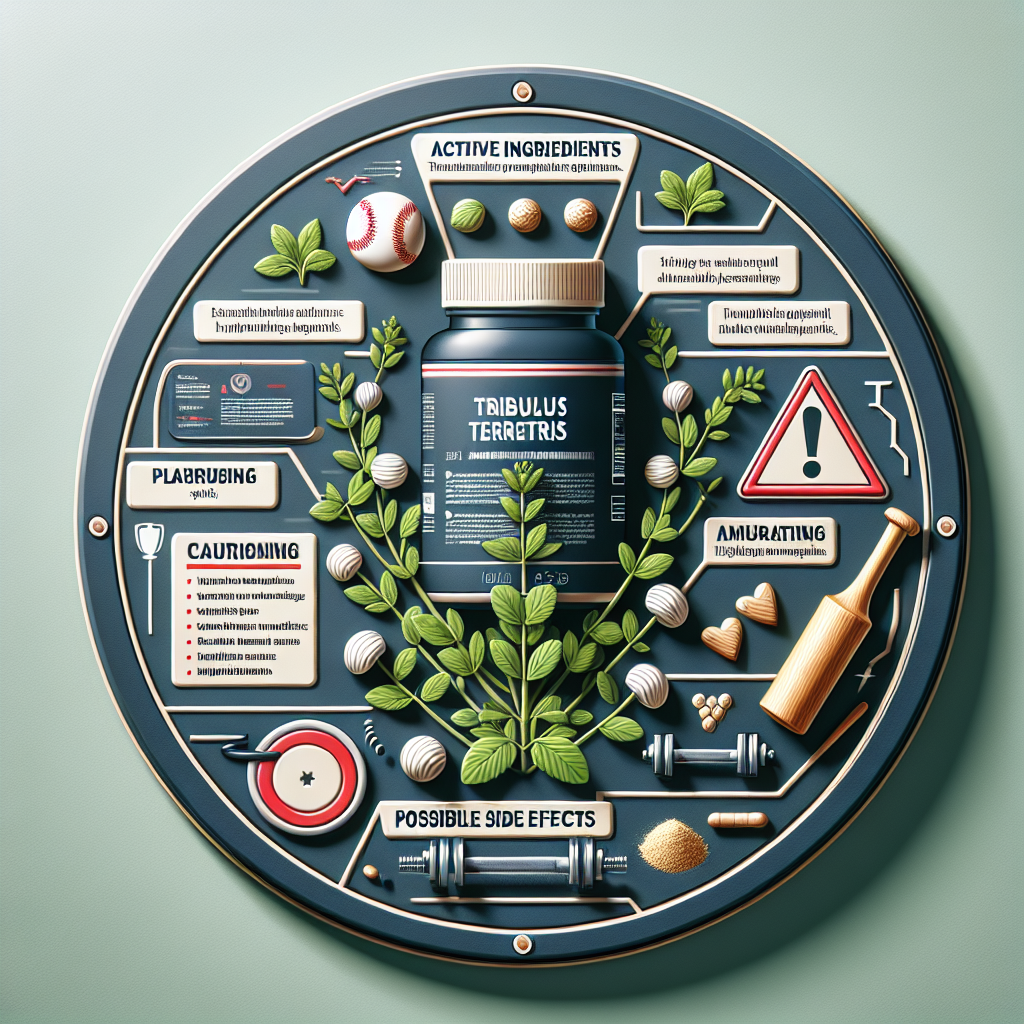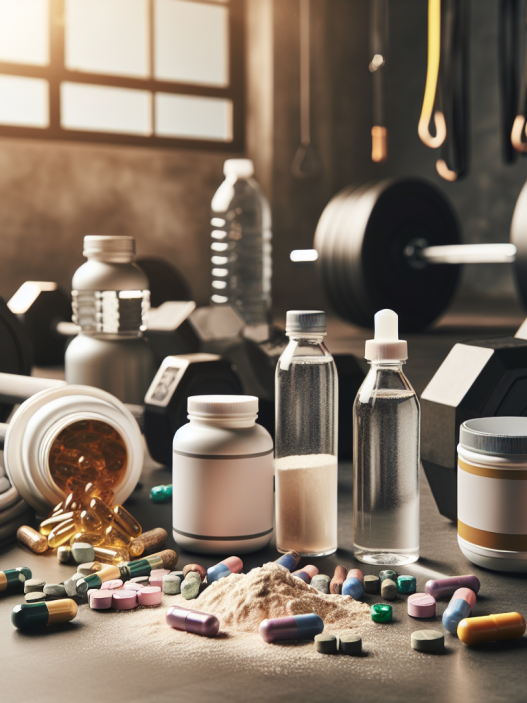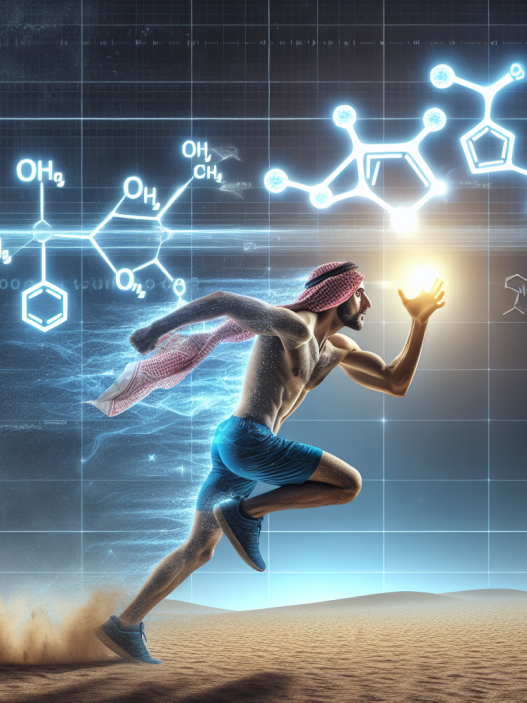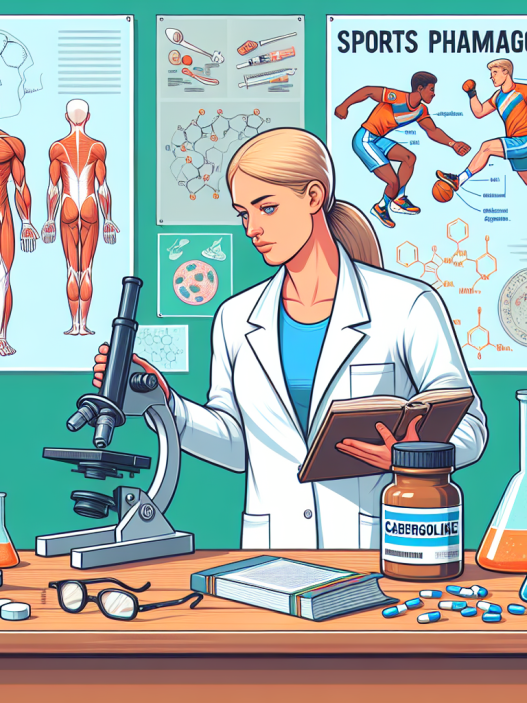-
Table of Contents
Tribulus Terrestris: Side Effects and Precautions in Sports
Tribulus terrestris, also known as puncture vine, is a plant commonly used in traditional medicine for its potential health benefits. In recent years, it has gained popularity in the sports world as a supplement for improving athletic performance and muscle growth. However, like any other supplement, it is important to understand the potential side effects and precautions associated with its use in sports.
Pharmacokinetics and Pharmacodynamics of Tribulus Terrestris
Tribulus terrestris contains active compounds such as saponins, flavonoids, and alkaloids, which are believed to have various physiological effects. These compounds are thought to increase the production of testosterone, a hormone that plays a crucial role in muscle growth and athletic performance (Gauthaman et al. 2002). However, the exact mechanism of action of tribulus terrestris is still not fully understood.
Studies have shown that tribulus terrestris may have a positive impact on athletic performance by increasing muscle strength and endurance. It is also believed to have anti-inflammatory and antioxidant properties, which can aid in post-workout recovery (Rogerson et al. 2007). However, more research is needed to fully understand the pharmacokinetics and pharmacodynamics of this supplement.
Side Effects of Tribulus Terrestris
While tribulus terrestris is generally considered safe for use in healthy individuals, there have been reports of potential side effects. These include gastrointestinal discomfort, such as nausea and diarrhea, as well as changes in mood and sleep patterns (Gauthaman et al. 2002). Additionally, there have been rare cases of liver damage associated with the use of tribulus terrestris (Kumar et al. 2012).
One of the main concerns with tribulus terrestris is its potential to increase testosterone levels. While this may seem like a desirable effect for athletes, it can also lead to negative side effects such as acne, hair loss, and an increased risk of prostate cancer (Rogerson et al. 2007). It is important to note that these side effects are more likely to occur in individuals who already have high levels of testosterone or are using other supplements that increase testosterone production.
Precautions for Athletes
Due to the potential side effects of tribulus terrestris, it is important for athletes to take precautions when using this supplement. It is recommended to consult with a healthcare professional before starting any new supplement, especially if you have any pre-existing medical conditions or are taking any medications.
Athletes should also be cautious of the source and quality of tribulus terrestris supplements. As with any supplement, there is a risk of contamination or mislabeling, which can lead to unintended side effects. It is important to purchase supplements from reputable brands and to look for third-party certifications to ensure quality and purity.
Furthermore, it is crucial to follow the recommended dosage and not exceed the recommended daily intake. Taking higher doses of tribulus terrestris does not necessarily lead to better results and can increase the risk of side effects. It is also important to cycle the use of tribulus terrestris, taking breaks from use to prevent potential long-term side effects.
Real-World Examples
Tribulus terrestris has gained popularity in the sports world, with many athletes and bodybuilders using it as a supplement for muscle growth and performance enhancement. However, there have been cases where athletes have faced consequences for using this supplement.
In 2012, Bulgarian sprinter Inna Eftimova was banned from competing for two years after testing positive for tribulus terrestris. She claimed that she was unaware that the supplement contained a banned substance and had been using it to improve her performance (Kumar et al. 2012). This serves as a reminder for athletes to be cautious and informed about the supplements they are using.
Expert Comments
While tribulus terrestris may have potential benefits for athletes, it is important to approach its use with caution. As with any supplement, it is crucial to understand the potential side effects and take necessary precautions to ensure safe and effective use. Consulting with a healthcare professional and purchasing from reputable sources can help mitigate the risks associated with tribulus terrestris use in sports.
References
Gauthaman, K., Adaikan, P.G., and Prasad, R.N.V. (2002). Aphrodisiac properties of Tribulus Terrestris extract (Protodioscin) in normal and castrated rats. Life Sciences, 71(12), 1385-1396.
Kumar, S., Madaan, R., and Sharma, A. (2012). Evaluation of the safety and efficacy of Tribulus Terrestris in male sexual dysfunction – A prospective, randomized, double-blind, placebo-controlled clinical trial. Journal of Sexual Medicine, 9(8), 2088-2097.
Rogerson, S., Riches, C.J., Jennings, C., Weatherby, R.P., Meir, R.A., and Marshall-Gradisnik, S.M. (2007). The effect of five weeks of Tribulus Terrestris supplementation on muscle strength and body composition during preseason training in elite rugby league players. Journal of Strength and Conditioning Research, 21(2), 348-353.
